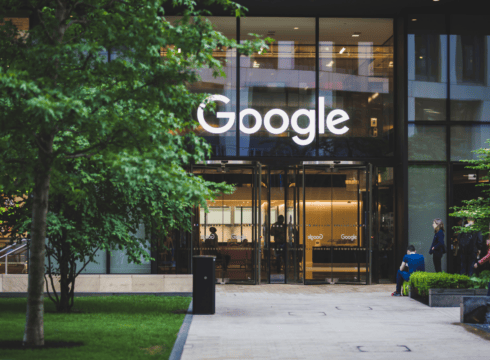Google said that the ‘quality and choice’ led users to download Chrome and drove the usage of the browser
There is material irregularity and failure to consider evidence on record: Google to the NCLAT
The next hearing in the case is scheduled on February 27 and could also see the Tribunal take up pleas of other companies impacted by the policies of Google
Inc42 Daily Brief
Stay Ahead With Daily News & Analysis on India’s Tech & Startup Economy
Arguing before the National Company Law Appellate Tribunal (NCLAT), tech major Google on Friday (February 24) reportedly said that the Competition Commission of India (CCI) has not empirically proven the existence of a ‘status quo bias’ with regards to user behaviour on Google Chrome.
Google made the point in its submissions to the NCLAT on the fifth day of hearing in the Android antitrust case.
Google’s counsel Arun Kathpalia claimed that the tech major’s evidence suggests that there is no status quo bias, adding that CCI made the ‘status quo bias’ claims without gathering any data. The tech major further added that ‘quality and choice’ led users to download Google Chrome and drove its usage, and not ‘pre-installation-led status quo bias’.
The US-based company also contended that its mobile application distribution agreement (MADA) does not prevent smartphone manufacturers from pre-installing other apps with similar functionalities.
It said that many original equipment manufacturers (OEMs) regularly pre-install their own web browsers as default options and Google is not alone in doing so.
Google also said that UC browser was downloaded on 79% devices and 104.9 Mn times prior to its ban by the Indian government in 2020. The Google counsel said that 50% of Samsung and Vivo smartphones have three or more competing browsers, while 91% of Android phones have a competing browser.
Giving an example of Internet Explorer, Google said that despite 100% pre-installation of the browser on Windows desktops, the Microsoft-backed browser’s share has gone down to single digits.
“There is thus material irregularity and failure to consider evidence on record,” added Google.
The two sides have been sparring with each other over an antitrust ruling by the competition watchdog that fined Google INR 1,337.7 Cr in the Android devices case. The CCI also levied a fine of INR 936 Cr on the tech giant in a separate case related to its Play Store policies.
Subsequently, Google challenged the antitrust order in the NCLAT in January but did not receive any immediate relief. Afterwards, the company moved the Supreme Court against the Tribunal’s decision. The apex court also rejected its plea and directed the NCLAT to take a call on the matter.
After much back and forth, the NCLAT again began hearing the plea earlier this month. Earlier this month, Google argued that CCI plagiarised its orders from a similar ruling by the European Commission in 2018. Last week, Google told the NCLAT that the CCI’s ruling was based on flawed investigation.
The case will next be heard on Monday (February 27) and could also see NCLAT take up pleas of other companies impacted by the policies of Google.
{{#name}}{{name}}{{/name}}{{^name}}-{{/name}}
{{#description}}{{description}}...{{/description}}{{^description}}-{{/description}}
Note: We at Inc42 take our ethics very seriously. More information about it can be found here.


